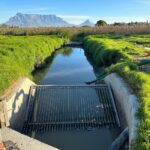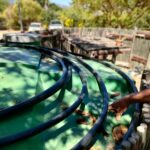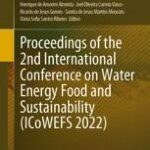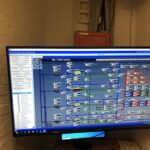Publications
Exploring the practical, social, and governance realities of a Water- Energy-Food (WEF) Nexus Governance approach: A case study of the V&A Waterfront in Cape Town, South Africa
by Lourens P. Swart.
Thesis presented in partial fulfilment of the requirements for the degree of Master of Philosophy in Sustainable Development in the Faculty of Economic and Management Sciences at Stellenbosch University
Supervisor: Prof Mark Swilling
Co-Supervisor: Ms Amanda Gang
Abstract
Urban spaces worldwide, including Cape Town, are reported to be the loci of sustainability challenges and solutions. This creates the necessity for governments and institutions to enhance urban social-ecological systems (SES) resilience to mitigate and leverage shocks. This includes shocks such as the interrelated water, energy, food, and waste resource challenges faced worldwide. However, there is a gap between commitments to SES resilience and the practical ability to govern for resilience, creating a dichotomy between resilience theory and practice. In response to this dichotomy, the Water-Energy-Food (WEF) Nexus framework has been proposed as a supporting instrument for SES resilience. This is because it represents a form of resource governance that manages resources interrelatedly rather than siloed, as approached traditionally.
To test these SES resilience-enhancing claims, a transdisciplinary research approach is adopted first to understand how the WEF Nexus is understood from a theoretical and practical point of view. It is found that a gap exists between academic ambitions for the WEF Nexus framework and the practical implementation of the framework, making it difficult for these resilience- supporting claims to be substantiated. In this regard, the WEF Nexus is under-explored practically, socially, and in terms of governance. To identify a practical nexus governance approach, the governance and management systems of the V&A Waterfront, including their Global Carbon Exchange (GCX) system, are explored. It is found that a nexus governance approach has been adopted by the V&A Waterfront, making it the perfect case study to test if a configured bridge between nexus theory and governance in practice (nexus governance) enhanced the practically demonstrated ability to govern for SES resilience. The practical, social and governance implications of the nexus governance approach at the V&A Waterfront are explored to test this claim. This is followed by an in-depth analysis of these implications and if they hold any potential for enhanced SES resilience. Findings suggest that the nexus governance approach at the V&A Waterfront has implications that strengthen the capacity to govern for SES resilience in the V&A Waterfront context. The conclusion is then made that the nexus governance approach also strengthens the capacity to govern for SES resilience in the Cape Town context. Results also suggest the most crucial element for the success of the nexus governance approach is a material flow analysis (MFA) based decision support system (DSS) exemplified by GCX Data Analytics and Sustainability Hub- (DASH-).










 © 2023 All rights reserved.
© 2023 All rights reserved.

